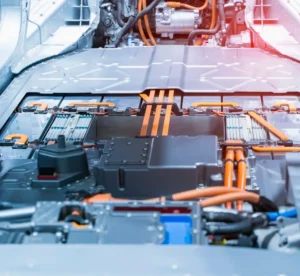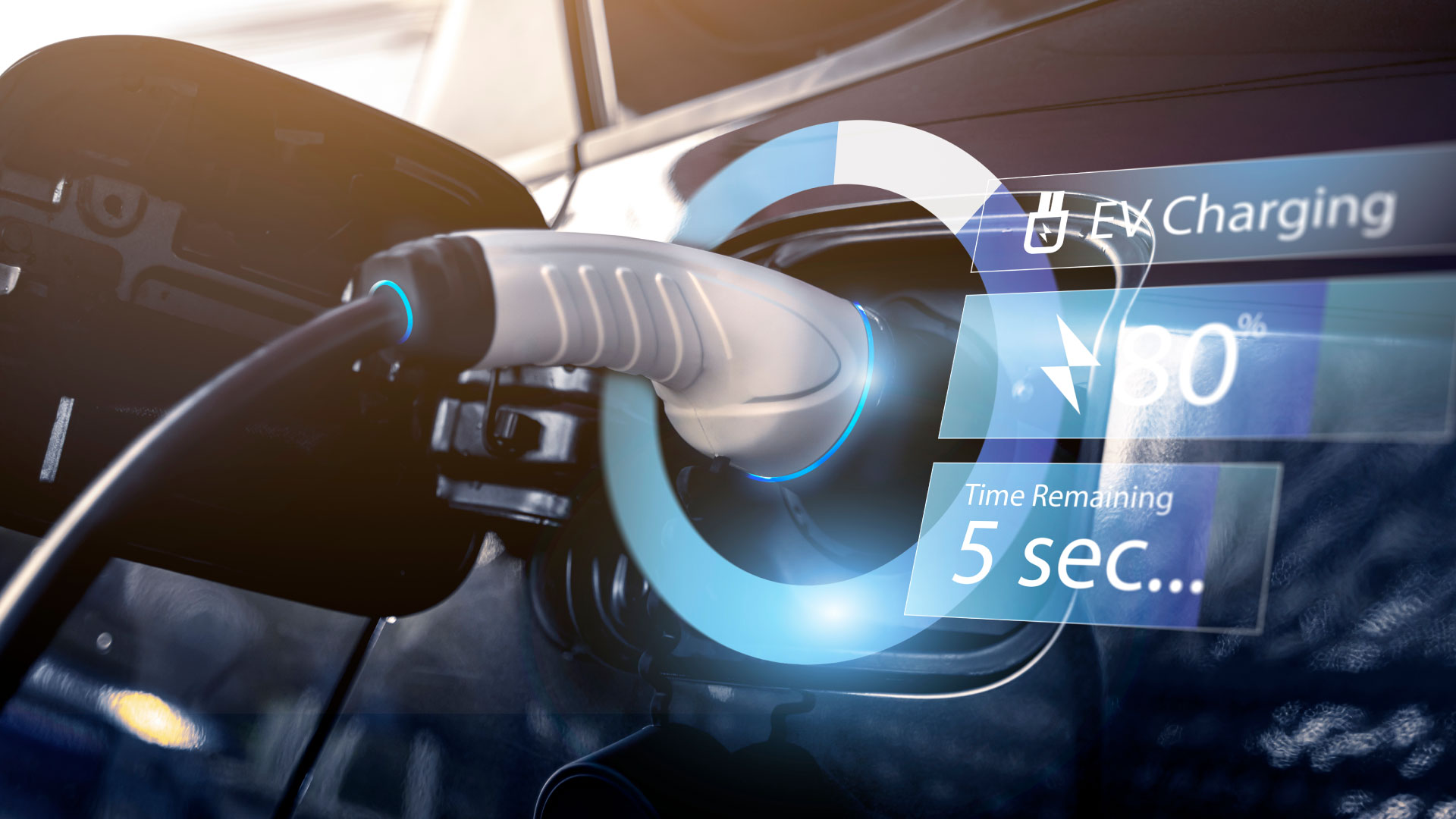The efficiency of electric vehicles (EVs) is well documented. EVs get an average equivalent of more than 100 MPGs. Vehicles with internal combustion engines are substantially less efficient with an average of less than 30 MPGs.
While it’s clear that EVs have a substantial advantage over gasoline powered vehicles in terms of efficiency, the range of vehicles—how far they travel on one tank of gas or complete charging—is clearly on the side of gasoline engines. According to the US Department of Energy, for the 2021 model year, the latest in which statistics are available, the average range of all-electric vehicles was 234 miles. This compares to a median range of 403 miles for gasoline powered vehicles. While this gap continues to narrow, it remains a significant detriment in consumers’ decision-making process when it comes to selecting between an EV and a gasoline powered vehicle.
Another big concern from consumers is the battery life of EVs. Most current EV models utilize lithium-ion battery packs for the storage of energy. While all EVs sold in the U.S. warranty the life the battery to last at least eight years or 100,000 miles, the consensus is that the current generation of battery packs should last 150,000 to 200, 000 miles and up to 15 years. In reality, the evolution of EVs is too new to accurately know how long to expect batteries to last.
EV manufacturers address battery longevity using software designed to manage battery health. In some cases, companies have designed cooling systems around batteries to negate heating that occurs through charging.
With the estimated cost of replacement batteries ranging from $5,000 to $15,000, concerns about battery longevity are well-founded.
What Impacts EV Battery Longevity?
Extreme weather conditions:
Areas that experience extreme heat, such as the Southwest, or extreme cold, such as Bailiwick’s home state of Minnesota, can cause some battery degradation during weather extremes. Lithium-ion battery packs operate most effectively at 70 degrees Fahrenheit. However, it should be noted that even with less-than-optimal weather conditions EVs in Norway accounted for four out of every five car registrations in 2022.
Charging type:
Level 3 DC fast chargers are highly sought after because of their quick charging times—often EVs can be completely recharged in less than 30 minutes. However, drivers who rely heavily on the use of level 3 DC fast chargers can expect faster battery degradation since these chargers, with their 480-volt energy source, create a lot of heat. And excessive heat negatively impacts lithium-ion battery packs.
Charging frequency:
As an EV driver, it’s tempting to always charge your battery to 100% of capacity. There is a downside to constantly charging an EV in that it will negatively impact the longevity of the batteries. Minimizing the number of times an EV is charged will help prolong the life of lithium-ion batteries.
Even in the best of conditions, the life of lithium-ion batteries will degrade over time. J.D. Power, a leading automotive research firm, estimates that consumers can expect batteries in EVs to degrade about 2.3 percent a year under normal conditions. For example, if a new EV has a range of 200 miles, you can expect that range to decrease to a range of 178 miles after five years.
To help assure customers that they won’t have to agonize over possibly having to replace batteries, EV manufacturers such as Tesla and Hyundai state in their warranties that they will replace the batteries if the amount of charge they hold falls below 70% of new levels within eight years or 100,000 miles.
The phenomenon of lithium-ion battery degradation over time is not limited to EVs. All devices that use this battery technology, such as cell phones and computers, undergo the same issues. However, the loss of battery life is typically so gradual that consumers don’t realize it is happening. And once battery degradation is noticeable, it is likely time for a new device anyway. Wireless phone companies expect customers to replace in their phones on the average of every 2.5 years.
Charge up your EV journey and power
towards a sustainable future!
Find out why companies trust Bailiwick for deployment of their large-scale digital technology initiatives.
The Next Generation of EV Batteries
Manufacturing and software improvements will continue to result in improved EV battery longevity. Already, manufacturers have developed vehicles that exceed 400 miles of range using lithium-ion batteries. Researchers are testing the feasibility of solid-state battery technology for next generation EVs. Instead of using liquid electrolytes found in the current generation of lithium-ion batteries, solid-state batteries would use ceramics or some other solid material for energy storage.
Yet other researchers are experimenting with using sodium-ion as a replacement for lithium-ion. While not offering any performance improvements to lithium-ion, sodium-ion is much cheaper to produce, with the potential to significantly cut the costs of batteries. Still others are experimenting with the use of solar panels to power vehicles.

However, the use of lithium-ion battery technology will be the standard bearer for the foreseeable future. The technology is proven effective, and the infrastructure now exists to support its use in large quantities. Consumers will benefit from an increasing number of car manufacturers gearing up their EV capabilities and the number of EVs on US roads and highways will continue to rise.
As a leader in the design and deployment of managed IT solutions, Bailiwick is a preferred partner for top brands who need to implement large scale technology initiatives such as multi-site EV charging stations. You are invited to contact Bailiwick at jhinrichs@bailiwick.com to receive a complimentary assessment of your multi-site EV charging station program.
